When it comes to one of the most common and most produced calibers ever made, the array of options available can be quite daunting!
A little bit of knowledge can go a very long way and picking the best ammo for your needs isn’t as hard as it might seem.
From twist rate to the debate between steel and brass, as well as deciphering the significance of “XM” and “M”, we’ve got you covered, along with our recommendations for the top 5.56 ammo choices for your AR.
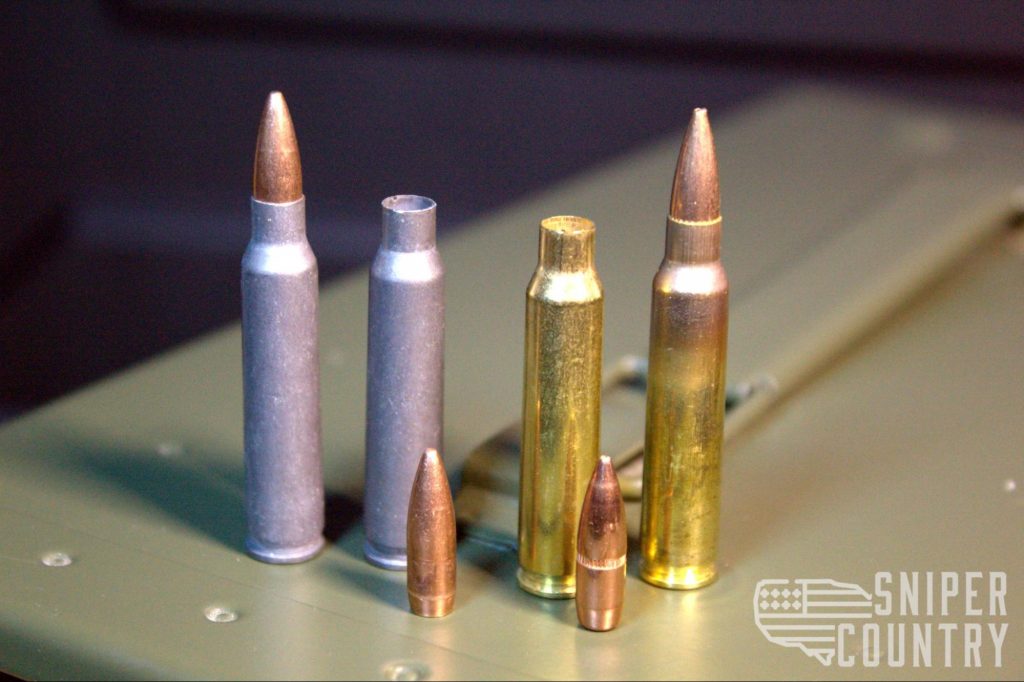
.223 Remington Vs. 5.56 NATO Vs. .223 Wylde
The short version is that any barrel marked 5.56 NATO or .223 Wylde can safely shoot BOTH .223 Rem and 5.56 NATO.
BONUS OFFER: Get your free shooting range targets to print at home!
Get your free targets to print at home!
Barrels marked as .223 Remington should ONLY be fed .223 Remington. These differences are nuanced but critical; .223 Rem utilizes a slightly smaller chamber compared to 5.56 NATO.
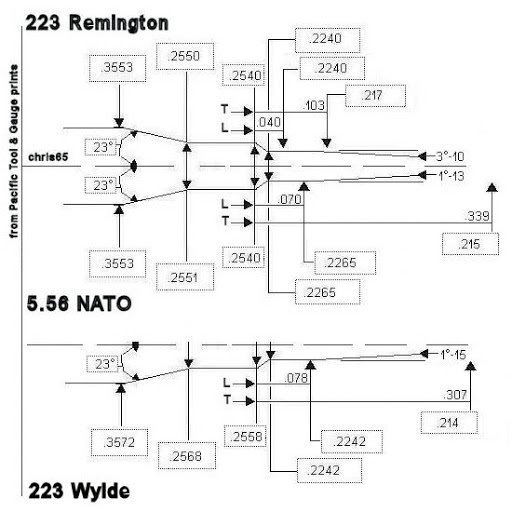
This is great for accuracy and consistency, but not great if you’re military mass-producing ammo by the billions. When 5.56 NATO was adopted, it was adopted with slightly higher max pressures than .223 Remington.
To offset that, the chamber is cut slightly larger.
Wylde is a mix of the two. Not as small as .223 rem, not as large as 5.56 NATO. This gives you the ability to use both ammo types but also squeeze out some extra accuracy.
.223 Remington barrels are very rare in AR-15s these days, but there are some very rare exceptions out there.
Matching Twist Rate To Bullet Type
Twist rate refers to how quickly your barrel imparts a spin on the bullet. Similar to a football flying through the air with a perfect spiral, adding a twist to the bullet enhances its stability during flight.
For barrels, this is expressed as 1 twist per inches. So a 1:12 means the bullet twists a full revolition, every 12 inches of barrel. A 1:8 would be 1 twist per 8 inches.
If your barrel’s length is shorter than the twist rate, there’s no need to worry; the bullet doesn’t require a full twist to achieve optimal spin.
Interestingly, even as little as 1 inch of barrel can sufficiently spin the bullet. Quite surprising, isn’t it?
Choosing Your Twist
In technical terms, the optimal twist rate for a bullet depends on its length.
However, length is annoying for people to pay attention to and since weight very closely correlates to how long a bullet will be – we generally use the weight of the bullet to match the twist.
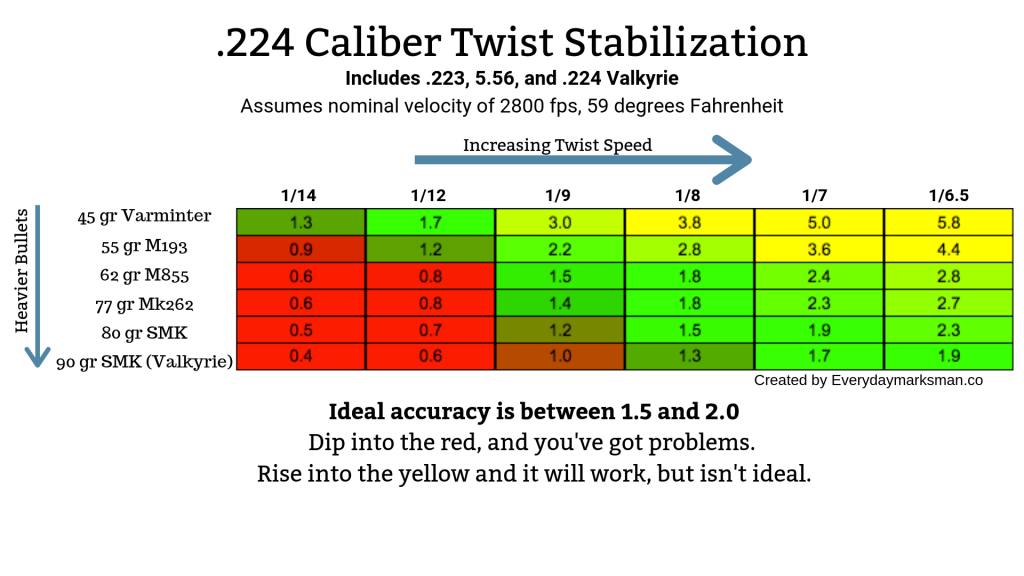
Image Caption: Awesome chart from Everydaymarksman.co
For any normal application, this is totally fine.
Popular super common weights for the AR-15 in 5.56 NATO range from 55gr to 77gr.
Weights lower than 55gr are primarily for varmint hunting, while those higher are intended for heavy-caliber, long-range precision rounds.
If you want a do-all barrel I highly recommend a 1:8 twist. 55gr will do well in it and the heavier 62gr and 77gr will do amazing.
For a varmint hunting barrel, the classic 1:12 is beastly.
The 1:7 twist rate has been the standard for versatile rifles and is the specification for M4 rifles, largely due to its ability to stabilize longer tracer rounds effectively.
The 1:8 twist is much better for anyone not constrained to what the military does.
XM Vs. Milspec
You may encounter various types of ammunition like XM855 or XM193, and wonder how they differ from official military versions like M855 and M193 (or other XMs and Ms). Essentially, there is no difference—these designations hold no technical significance. It’s not a regulated terminology; some manufacturers use “XM” while others use “M”.
The brands that use “XM” say they use it to differentiate from their “M” SKUs that are tested and sold to military or LEO customers.
“M” doesn’t mean you’re actually getting proper 100% real live mil-spec ammo unless that brand also has military supply contracts. “M” doesn’t mean you’re actually getting proper 100% real live mil-spec ammo unless that brand also has military supply contracts.
Popular Articles
Green Tip M855 5.56 NATO
Another prominent type of ammunition you’ll encounter is the “Green Tip” 5.56 NATO. M855 is the designated military name for a 62-grain steel core 5.56 NATO cartridge.
There are several advantages and disadvantages to Green Tip ammo; personally, I find that the cons outweigh the pros.
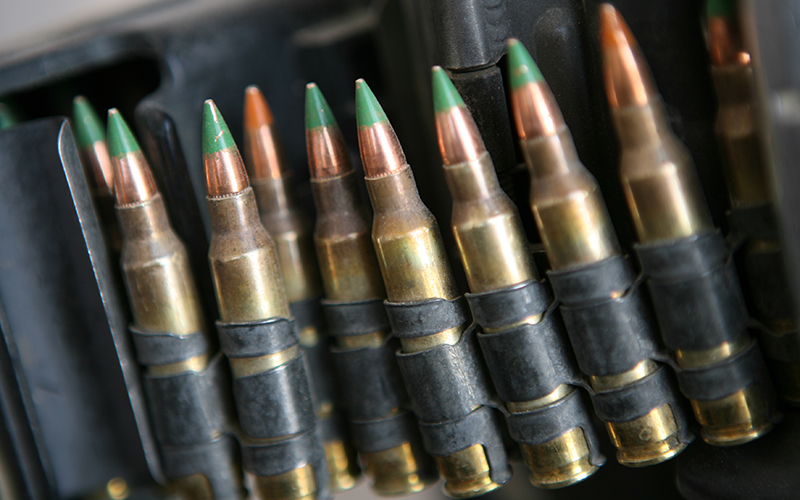
Technically, M855 isn’t classified as “armor piercing” under ATF definitions, making it legal for civilians to purchase.
However, it does have increased penetration.
Despite this advantage, it tends to be more expensive than other types of ammunition, is often less accurate, and its penetration is more effective against barriers than armor.
Granted, M855 will fly right through most level III armor and all soft body armor. But that’s basically why level III+ armor was designed, to beef up the level III so it could stop M855.
If a bad guy is wearing armor, I would be surprised if they’re wearing level III when III+ is widely available and basically the same price.
That said, M855 is great for punching through barriers.
While having a large supply of M855 for doomsday scenarios might seem practical, it may not be the most suitable round for other purposes.
BONUS OFFER: Get your free shooting range targets to print at home!
Get your free targets to print at home!
Steel Vs. Brass Case
During times like these, many of us gravitate towards the most economical option available, which typically means steel-cased ammo.
Steel is a totally viable case material, 7.62×39 has been using it since it was designed. But it isn’t as nice as brass casing.
Brass is softer and expands more effectively in the chamber, creating a tighter gas seal and facilitating easier extraction.
On the other hand, steel casing does not expand or extract as efficiently, resulting in dirtier operation and requiring higher gas pressure for extraction.

Despite its affordability, the greatest advantage of steel-cased ammo is its tolerance for wider manufacturing variations. It’s not uncommon to see an extreme velocity spread of 50-70 feet per second.
While malfunctions are more frequent with steel-cased ammo compared to brass, they are not excessively problematic. Lucky Gunner conducted extensive tests, firing 10,000 rounds each of two types of steel-cased ammo (20,000 rounds total) and 10,000 rounds of brass-cased ammo.
They found zero malfunctions with brass, but encountered a combined 24 malfunctions with steel.
Approximately 1 malfunction per 1,000 rounds for steel-cased ammo isn’t terrible, assuming it’s not a matter of life and death.
Steel is also harder on your rifle. While steel case is normally coated in a lacquer to aid in extraction, it will still wear down your barrel’s chamber and throat more quickly than brass will.
It will also tend to break extractors more often.
Extractors are cheap to replace, but a new barrel adds up. Generally speaking, running nothing but steel an AR-15 barrel will last 8,000-11,000 rounds before you run into major reliability issues and major accuracy issues.
Running nothing but brass, you can get around 15,000 rounds of barrel life.
Show Me The Money
However, the cost-effectiveness of steel outweighs the need for more frequent barrel replacements. Even with more frequent barrel changes, you’ll still save money in the long term—sometimes, significantly so.
As of now, steel-cased ammo costs around 32 cents per round at its cheapest, whereas brass costs about 46.5 cents per round.
Assuming a barrel is $200 each and you need a new one every 8,000 rounds for steel and every 15,000 for brass, your total cost for 30,000 rounds of barrel life and bullets fired is $10,350 for steel and $14,150 for brass.
Saving almost $4,000 over the course of 30,000 rounds is a huge amount of money. That’s literally new KAC SR-15 and an EOTech + magnifier money.
Personally, when it comes to plinking and training all I run is steel.
For home defense, hunting, and long range competition I bite the bullet so to speak, and get brass.
Now let’s discuss the best 5.56 ammo!
BONUS OFFER: Get your free shooting range targets to print at home!
Get your free targets to print at home!
6 Best 5.56 Ammo for Your AR-15
Wolf Steel Cased
In more prosperous times, this was my top recommendation for affordable plinking ammo that consistently performs well. While it remains a solid choice, its price, like that of everything else, has increased.
IToday, it’s less about being “cheap” and more about being “less expensive than other options.” Nevertheless, it remains effective, accessible in bulk quantities, and these qualities alone justify choosing it.
I’ve personally fired thousands of rounds and have thousands more stocked on my ammo shelves.
Speer Gold Dot 55gr
This is one of the gold standards for defensive ammo. Speer Gold Dot is trusted in every caliber they make it in and I would personally bet my life on it.
I like their 55gr version the most because it has less overpenetration in drywall.
When it comes to defending your home against whatever goes bump in the night, this is a choice that might save your life.
BONUS OFFER: Get your free shooting range targets to print at home!
Get your free targets to print at home!
Black Hill
Honestly, literally, anything from Black Hills is outstanding ammo. Everything they make is match grade and everything they make is a work of art.
It’s not cheap, it’s hard to find, and when you find it the odds of being able to get more than a few hundred rounds are slim, but man oh man this is great ammo.
My favorite is the 77gr OTM. I’ve shot it from my precision 20″ AR out to 900 yards and it rings steel all day long.
This stuff is too rare and too expensive for everyday use, but if you want to really stretch your rifle out – grab yourself a few boxes and see what you can really do.
Federal American Eagle XM193
This 55gr brass-cased ammo is crafted to a high standard of quality. When I aim to build a substantial stock of brass ammo, this is typically my top choice.
It offers a fair price, excellent performance, and has never failed to fire reliably for me.
While it may not boast any extraordinary features, its consistent reliability makes it a dependable tool for its intended purpose.
Federal American Eagle XM855
If you want to stock up on Green Tip, this is what I love.
Occasionally, you can find it pre-loaded on stripper clips, and despite the slightly higher cost, I find the convenience well worth it.
While I don’t frequently shoot XM855/M855, I typically keep a few magazines loaded in a chest carrier stored in the closet next to my go-bag. After all, you never know when armored zombies might show up, right?
Hornady Frontier 55gr
I’m mentioning this for two reasons: first, to debunk some internet rumors, and second, because I genuinely believe this is reliable ammunition.
When Hornady Frontier initially launched, it quickly garnered a negative reputation, and rightfully so. Early production batches had serious issues that resulted in some rifles malfunctioning dangerously.
Fortunately, no injuries were reported, but such incidents are entirely unacceptable, especially from a well-regarded manufacturer like Hornady.
That said, the issue was quickly resolved, a recall issued, and everything since then has 100% good to go.
But because of how bad a rep Frontier got in those early days, you can often find it for a decent amount cheaper than comparable ammo. And hey, cheap ammo is cheap.
Currently, this is great ammo and I would trust it. Just don’t buy any second-hand boxes… just in case.
Wrapping Up
I hope this helps you not only choose the right ammo for your needs but also educate you on some lesser-known topics.
It’s a lot of information to digest, but it’s more manageable than it may seem.
For cheap shooting, Wolf Steel Cased is awesome.
I trust Speer Gold Dot as my #1 pick to defend my home with, it’s my best 5.56 ammo. But when it comes time for some penetration, American Eagle XM855 is good to go. If you find it on stripper clips, get double!

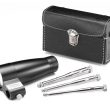
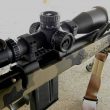

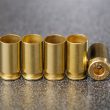

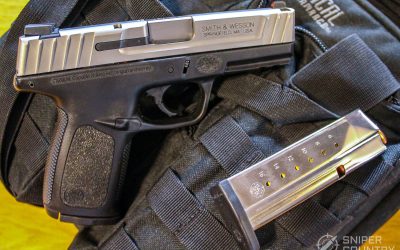

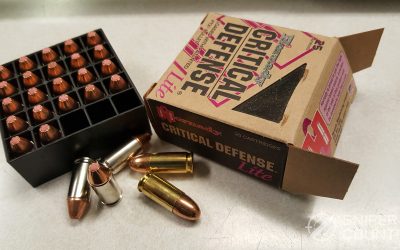
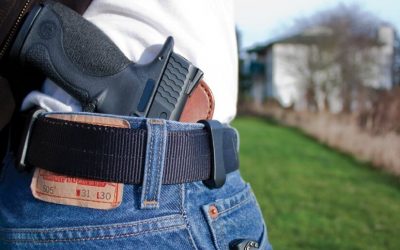
![9mm Glock Models [Ultimate Guide]](https://www.snipercountry.com/wp-content/uploads/2018/10/Glock-17-vs-Glock-19-vs-Glock-26-vs-Glock-41-vs-Glock-43-WM-400x250.jpg)
![Handgun Calibers [Ultimate Guide]](https://www.snipercountry.com/wp-content/uploads/2018/10/Handgun-Caliber-Comparison-400x250.jpg)
![Rifle Calibers [Ultimate Guide]](https://www.snipercountry.com/wp-content/uploads/2018/12/Header-1900-400x250.jpg)
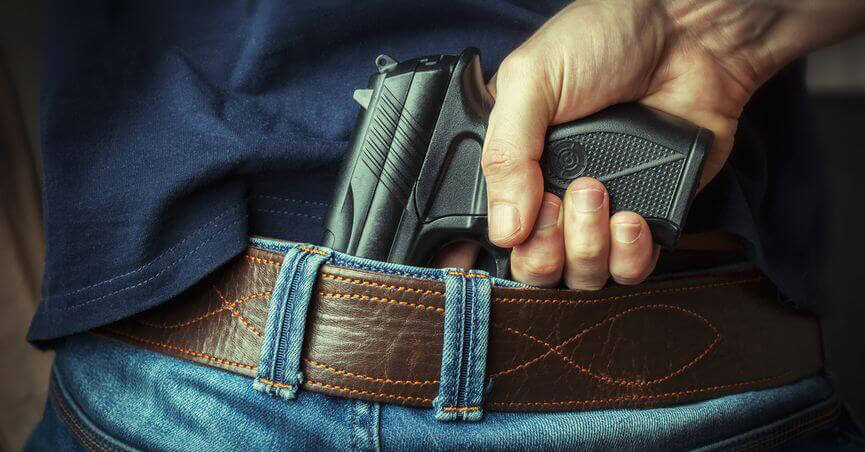
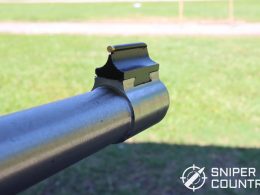
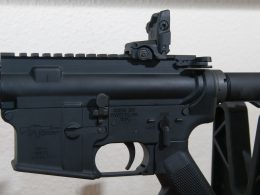
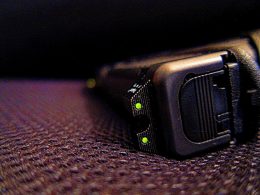
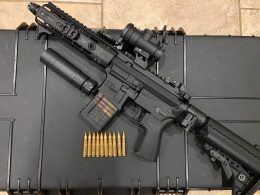

This is the second of your articles I have read concerning .223/.556 ammo (the other concerning the dif between 923 and 855 rounds). Cudos to you. Detailed, practical, concise and useful info for which I thank you.